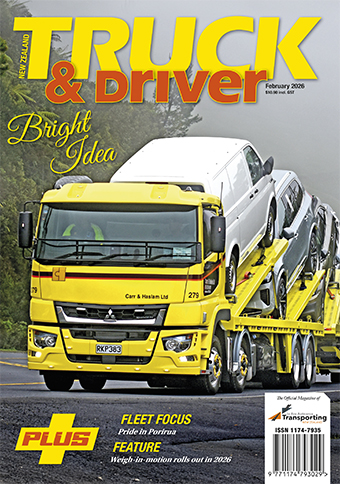Focus on freight efficiency not just a nice to have
Posted: 18-Jul-2025 |
Why the NRC focus on freight?
In the Government’s self-declared year of economic productivity and growth, we’re seeing some good signs. International summits to attract overseas infrastructure investors, National Infrastructure Plans, roadblock removals in RMA reforms.
But one area is conspicuous by its absence – Freight & Supply Chain productivity.
When it comes to lifting freight task efficiency New Zealand has no strategic goals, no coordinated plan to improve them, and no agreed way to measure progress.
Which is plainly astonishing. The New Zealand economy is, after all, built off the back of moving stuff around. World class stuff – dairy, primary produce, seafood, logging and livestock, to name a few. Stuff that is keeping our economy afloat right now. From paddock or forest to port or airport.
And we are not immune at home, freight inefficiencies hit all of our pockets by increasing the cost of everything we buy off the shelf, deepening the cost of living crisis.
That is why National Road Carriers has been busy, both behind the scenes and in media, leading the call for freight task efficiency.
This week Business Desk published an article where I talk about how NZ lags behind Australia on freight strategy and data sharing. (Thank you BusinessDesk for putting this article in front of the paywall so our members can access it. And two cents from me, if you don’t have a subscription already, you should – BusinessDesk are leading the way on the conversations that matter.)
In April I wrote to Transport Minister Chris Bishop calling on him to “direct transport agencies to prioritise freight productivity in their planning, policy execution and operations.”
And I’m pleased to say it has been noticed, the Minister has shared the letter with transport agencies, and we are starting to see signs of action.
So how is our ebbing freight efficiency hurting transport operators?
Every day, decisions we made (or more likely didn’t make) over the last decade mean we are leaving far too much freight efficiency on the table. Real dollars lost to margin-squeezed transport operators, and the economy.
It turns up in the time trucks spend in stuck in congestion in our biggest cities, perhaps cutting what could be 4 trips a day to 3.
It turns up in the several hundred-kilometre detours trucks take every time a State Highway 1, 3 or 6 is closed, due to a lack of true resilience investment in our roading network.
It turns up as lost competitiveness for our exporters and more expensive imports, such as the huge increases we’ve seen this year for transport operators to take a container on or off port at Tauranga, Napier and Auckland, possible only because they are monopolies.
These port charges have been put in place to deliver immediate shareholder returns, without any thought towards improving supply chain productivity or efficiency.
All these inefficiencies add up to us all paying more for our food, clothing and all the other goods we buy.
The way forward – strategy & planning
Thankfully there are some major wins to be had with some very straight forward steps.
The first could be to establishing a Freight Council – where industry leaders across all transport modes come together to work with government and transport agencies to:
- Plan transport investments as a system, with investments and policies tasked to seek optimal outcome across all modes (road, rail, maritime and air), not just favouring one;
- Build the data capability needed for evidence-driven planning (read the Business Desk article to see how NRC is leading the way on this);
- Follow the evidence – agree the way to measure freight efficiency (across all modes), then model the freight efficiency improvements various investments will make.
- Set bold goals, building a freight and supply chain vision for the next 5-10 years and beyond.
An obvious place to start could be the Cook Strait Ferry investments. Model what rail-enabled ships versus standard ships deliver for freight efficiency across road, rail and maritime. Be transparent and publish the cost versus benefit projections. Then invest in the solution that drives the biggest lift in freight efficiency for buck.
We only need to look across the ditch to Australia at their National Freight & Supply Chain Strategy to see a great example we could follow.
NRC is not alone in calling for focusing on freight and supply chain. In September I am off to the Custom Brokers and Freight Forwarders conference in the Hawke’s Bay to join a panel discussion on how New Zealand can enhance our Freight & Supply Chain.
The year of productivity and growth depends on it.
Justin Tighe-Umbers, Chief Executive, National Road Carriers Assn



 + EQUIPMENT GUIDE - FREE
+ EQUIPMENT GUIDE - FREE
